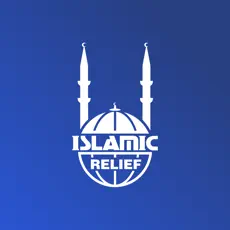Poverty is a global issue affecting hundreds of billions of our fellow humans. Some 712 million people around the world live in extreme poverty, subsisting on less than $2.15 USD per day. Billions more people may fare slightly better, but are still vulnerable to extreme deprivation and would be considered poor by any reasonable definition of the word.
Islamic Relief USA (IRUSA) addresses this crisis through a unique approach rooted in Islamic teachings. Guided by the revelations in the Quran, IRUSA seeks to alleviate poverty and suffering via emergency relief and long-term development aid that uphold the dignity and well-being of all people, regardless of their faith.
The Central Role of Charity in Islam
Helping the poor and vulnerable is a religious obligation in Islam. Zakat, the third pillar of Islam, requires Muslims to give a portion of their wealth to those in need, if they are able. Additionally, voluntary charity, or Sadaqah, is also an important aspect of faith in Islam. This type of charity can take many forms, from monetary donations to acts of kindness, such as helping a neighbor or simply offering a smile.
The Prophet Muhammad (PBUH) highlighted the importance of charity through various teachings and sayings. For instance, he taught that every small act of kindness counts as charity. This broad understanding of charity reflects the belief that all good deeds contribute to a just and compassionate society.
In the Quran, charity is both a duty and a right: “The believers…in whose wealth there is a recognized right for the needy and deprived” (Quran, 70:24-25). In other words, charity is not just something that is nice to do—the poor have a right to share in the wealth of others, and people of means have a duty to fulfill these rights.
Furthermore, Muslims are encouraged to give charity regardless of their own financial situation. The Quran advises believers to give “in prosperity or adversity” (3:134), a teaching that highlights how essential charity is to the faith, and the fact that charity is an ongoing duty, not just a one-time act. This is further supported by the Prophet Muhammad’s (PBUH) saying, “Avoid doing injustice to others, for on the Day of Judgment, it will turn into manifold darkness.” All these teachings inspire IRUSA’s commitment to help the needy and promote social justice.
Other Islamic Perspectives on Poverty
Contemporary Islamic perspectives on the causes of poverty also inform IRUSA’s approach to poverty alleviation. Research shows that American Muslims are significantly more likely than the general public to believe that poverty results from circumstances beyond one’s control, such as systemic inequality and lack of opportunities, rather than personal failings. This aligns with Islamic teachings that encourage empathy and support for those less fortunate.
Poverty among American Muslims
Research has shown the challenging economic circumstances that many American Muslims face. The Institute for Social Policy and Understand (ISPU) 2019 American Muslim Poll found that Muslims in the United States are more likely than any other faith group to live below the poverty line. Approximately 37% of Muslim households report annual incomes below $30,000, compared to 26% of the general public. These statistics are a testament to the broader socio-economic challenges within the Muslim community.
IRUSA upholds the concept of ummah—the global community of Muslims—united in faith as one family. Every member of the ummah is equal before Allah (SWT), regardless of their wealth or privilege. Inspired by this concept, IRUSA cares for the poor and vulnerable within the ummah, in addition to people in need who follow other faiths.
How IRUSA Works to Alleviate Poverty
IRUSA understands that alleviating poverty requires long-term solutions. Accordingly, the organization invests in projects that empower communities, promote human dignity, and help people build self-sufficient lives.
Food Aid
Hunger and poverty are inextricably combined. Currently, there is enough food produced to feed everyone on Earth, but not everyone has equal access to it. Almost a billion people experience hunger every day.
Guided by this reality and the many Islamic teachings about the importance of feeding one’s neighbor, IRUSA provides extensive food aid, including hot meals in cities across the US, Ramadan and Qurbani/Udhiyah food packages, and summer food aid for youth in need.
Access to quality education is a major barrier to economic mobility in many communities, so education is a cornerstone of IRUSA’s long-term poverty alleviation strategy. The organization builds schools and funds educational programs to help create opportunities for people to escape poverty. IRUSA’s efforts in this area also align with the Islamic principle of supporting orphaned children, which is frequently mentioned in the Quran as a group particularly in need.
Poor health and poverty often go hand in hand. Around the world, low-income people have less access to quality medical care, and poor health can cause entire families to fall into poverty or prevent them from climbing out of it. IRUSA works to address this disparity by improving healthcare access. The organization constructs clinics, distributes medical supplies, and funds essential healthcare services. These projects help ensure that vulnerable populations receive the care they need.
Economic empowerment is another key component of IRUSA’s poverty alleviation strategy. Programs such as microfinance loans, vocational training, and agricultural development projects help people create sustainable livelihoods.
The Broader Impact
Beyond direct aid, IRUSA promotes a culture of giving that extends beyond financial donations to including volunteering and engaging in acts of compassion, both big and small, to alleviate poverty and build a just society.
IRUSA’s approach to poverty alleviation therefore embodies the core principles of Islam: charity, compassion, and justice.
